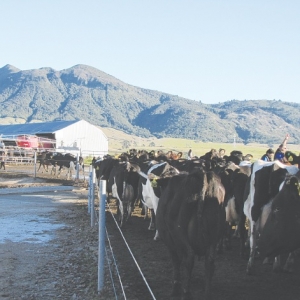The scheme, which was launched February 2009, is now fully subscribed with 102 veterinary graduates employed under it across New Zealand.
“Even better, 96% of those entering the scheme from the time it commenced in have stayed in it,” says New Zealand Veterinary Association president Gavin Sinclair.
The first tranche of graduates that entered the scheme received their first payments of $33,000 before tax, ie $11,000 per year in the scheme, just prior to Christmas. At that point, four had left the scheme, and ten moved to other rural practices.
Some regions are still proving tough to recruit for, but the result is encouraging, says Sinclair.
“This is just what we wanted; young veterinarians settling into rural practice and hopefully remaining there. They are sorely needed.”
The NZVA says it lobbied hard for the introduction of the scheme as gaps were appearing in “the thin green line” of the veterinary rural workforce. While Government has significant responsibilities for food safety, animal welfare, and biosecurity, it relies on veterinarians to monitor livestock to ensure these responsibilities are met, says the association.
The market risk of late recognition of an exotic disease outbreak, food safety concerns, animal welfare disasters and veterinary involvement in managing these risks was recognised in part by government support of the scheme, it notes.
For farmers, the NZVA says the scheme means a viable, sustainable, cost effective and responsive rural veterinary workforce for routine and emergency clinical services.
“A rural veterinary practice faces many risks and challenges, not the least being able to sustain the 24/7 on call requirement,” notes Sinclair.
“These practices have a high workload and a surprisingly low level of remuneration which can make the work unattractive to young graduates.”
Demographic trends, notably 85% of new graduates from Massey being female, and vets wanting flexible working arrangements, often part-time at some points in their careers, means companion animal practice posts in urban areas have become increasingly popular.

















